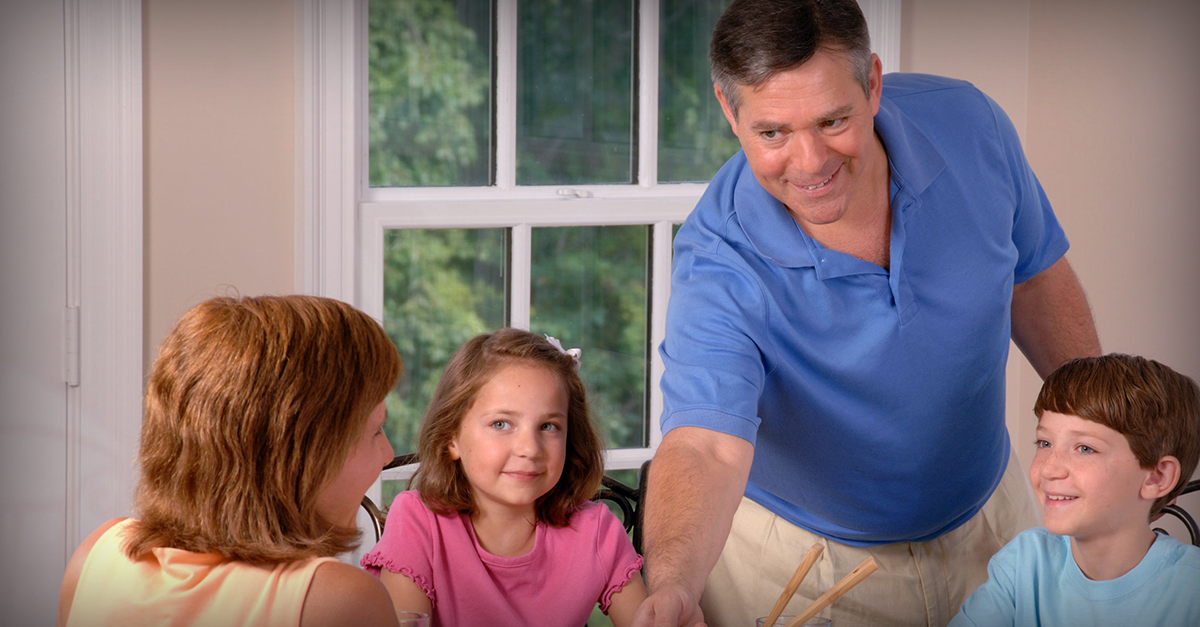Parental Engagement: Benefits, Tips, and Research

3 Tips on How to Be Engaged in the Lives of Your Children
Our kids need us to interact with them and guide them in their education. As parents, we know our children better than anyone else, and this allows us to interact freely and naturally with them as we encourage their continual learning and growth.
Research continually affirms that parental engagement is crucial for children’s academic success; here are a few helpful tips for parents.
1) Schedule Time to Spend With Your Kids
Debates often rage about whether so-called “quality” time is more important than the quantity of time spent with kids, but in general, this presents a zero-sum game that doesn’t reflect true life. In reality, having a conversation with your child while you empty the dishwasher can be just as beneficial as taking your child to a ballgame. The important thing is that you spend time interacting with your children in a variety of settings and engage with them in a variety of ways. Look for natural opportunities to engage with your kids in the mundane activities of life, but also sprinkle in learning activities with them like trips to the zoo or museum.
2) Ask Your Kids Questions About What They’re Learning
Not only does this show your children that you care about them and their education, but it also gives you an opportunity to see what subjects your child is excited about and which subjects your child might dislike and/or be struggling with — and this provides you with the ability to encourage them in their strengths and help them conquer challenges in areas where they are weaker. Conversations on pretty much any topic can be helpful for children, too, simply by the nature of the vocabulary you use, the logic you employ, and the connections you make from one subject area to another. Conversations are a great way to model good thinking for your kids.
3) Take Advantage of Educational Resources
Take your kids to the library to check out books and see what special library programs are available over the summer. Spend a day at a local museum. Visit an art gallery. Attend a musical at the local theater or listen to a live performance from an orchestra. Many times there are educational opportunities near you that are low-cost or even free. A simple Google search can yield results about educational opportunities in your area that you might not have even known about.
As parents, we don’t have to be experts or academic geniuses to have a positive influence on our child’s educational progress. By simply being engaged with our kids, we are helping them build foundational learning skills that will benefit them throughout their education.
While we try to teach our children all about life, our children teach us what life is all about.
Angela Schwindt
Parental Engagement Example
Like many young people, when I entered my teenage years my tastes in music diverged from that of my parents as I began searching for sounds that resonated with my swirling thoughts and emotions.
My mom took the time to engage with me, not as a critic of my current taste in musical form but as someone curious to learn. She would ask me what I liked and why I liked it. She would even sit and listen to the latest bands I had “discovered.”
Looking back I sometimes call into question my musical taste, but what I can’t call into question is the love my mom had for me. She made the effort to engage with me where I was regardless of what she happened to think about my music.
Affirming words from moms and dads are like light switches. Speak a word of affirmation at the right moment in a child’s life and it’s like lighting up a whole roomful of possibilities.
Gary Smalley (Marrage & Parenting Expert)

Dr. Ben Carson: The Power of Parental Engagement
He grew up in extreme poverty. His parents divorced after his mother, who had married at age 13, found out that her husband was a bigamist who had another wife and children. He grew up an African-American in Detroit; his mother only had a third-grade level education. His name is Dr. Benjamin Carson, a graduate of Yale, a world-renowned (and now retired) neurosurgeon honored by a medal from President George W. Bush, the recipient of more than 60 honorary doctorates, a respected speaker, and a successful author.
Dr. Carson’s story is one that has inspired many people. (His book, Gifted Hands, was turned into a movie starring Cuba Gooding, Jr. in the lead role.) Dr. Carson contributes a great deal of his success to his mother, Sonya, who was a woman of faith and passed that faith along to her sons. In addition, Dr. Carson’s mother helped cultivate a love of learning in him. Each week, she would limit the amount of TV her sons were allowed to watch and required them to read two books of their choice from the library and write book reports for each book. Sonya would then make marks with a red pen and hand the reports back to her sons. It wasn’t until he was much older that he realized his mother didn’t know how to read.
Despite the odds, Dr. Carson went from being an angry and unmotivated student whose classmates called him “dummy” to being a successful and respected scholar who was once a presidential candidate in 2016 and then served as Secretary of Housing and Urban Development from 2017-2021. In many ways, Dr. Carson is the poster child for advocates of parental engagement in education: his story profoundly illustrates the power of an engaged parent in the life and education of a child. His mother didn’t even know how to read, but she knew the importance of reading; she may not have had a top-notch education, but she knew enough to realize the importance of education. It was her dedication and love for her children that allowed him to persevere through adversity to become a man of great character and intellect. As the story of Dr. Carson shows, when parents are engaged, great things can happen.

The Importance of Parental Engagement, According to Research
Parental engagement has a huge impact on academic achievement.
Students whose parents are engaged in their education tend to do well. Study after study affirms that parental involvement is beneficial and even essential when it comes to student academic achievement. For example, one such study, entitled Parent Involvement in Early Intervention for Disadvantaged Children: Does It Matter?, found that even after controlling for family background, the number of activities in which parents participated when their child was in preschool and kindergarten was significantly associated with higher reading achievement.
An annotated bibliography citing 49 studies of the effects of parent involvement on children’s academic achievement and the performance of schools reached some interesting conclusions. The bibliography reported that “the bulk of the research finds that a positive learning environment at home has a powerful impact on student achievement.” In addition, it was noted that parental involvement significantly improved language skills, test performance, and school behavior, as well as had a positive effect on the general educational process such as educational aspirations.
The most accurate predictor of a student’s achievement in school is not income or social status, but the extent to which that student’s family is able to:
Create a home environment that encourages learning
Henderson and Berla (1994)
Express high (but not unrealistic) expectations for their children’s achievement and future careers
Become involved in their children’s education at school and in the community.
Of course, the research is merely affirming what is commonly known: parents have a profound effect on their children. Parents can influence their children in very positive ways, whether it’s helping their children develop self-confidence, expanding their vocabulary through healthy conversation, or inspiring them to reach for the stars through reading and learning.